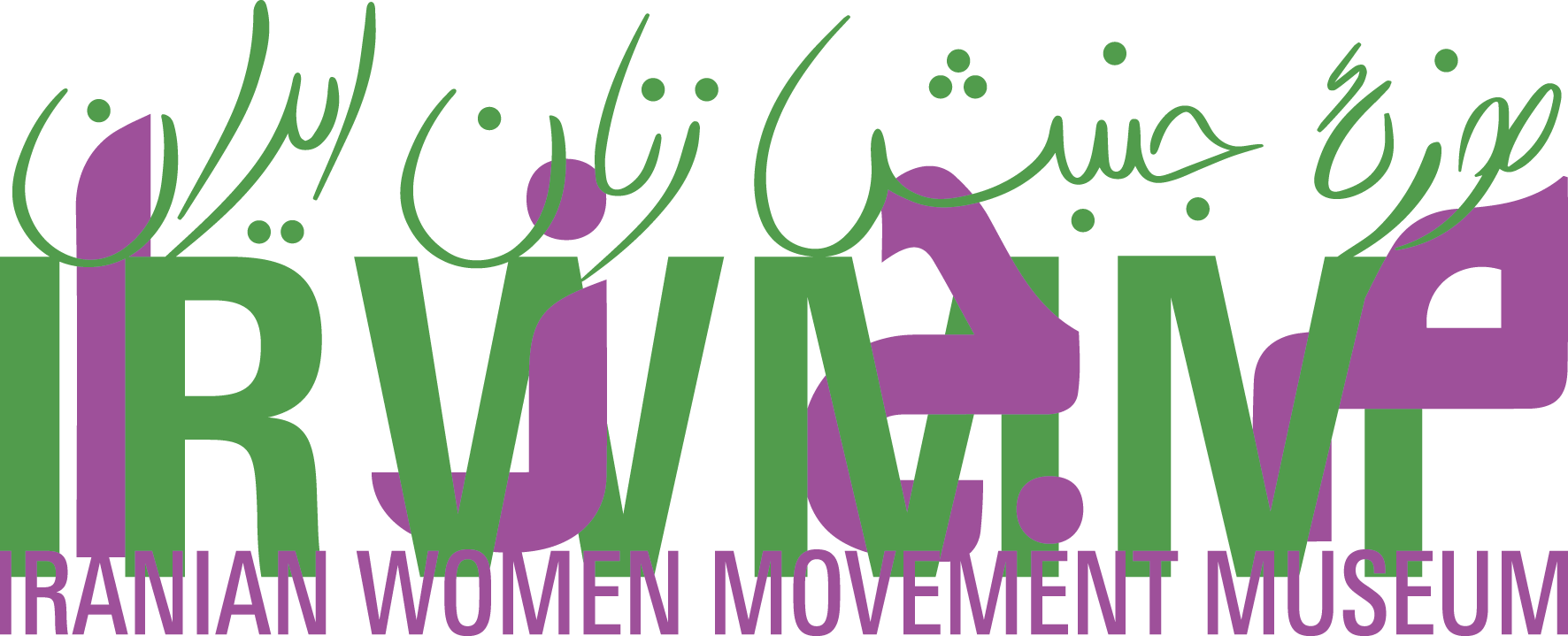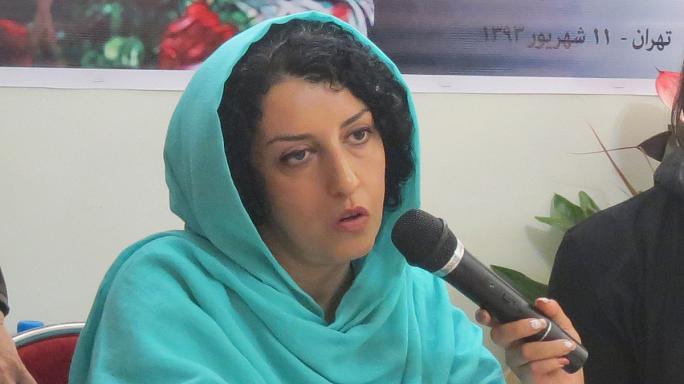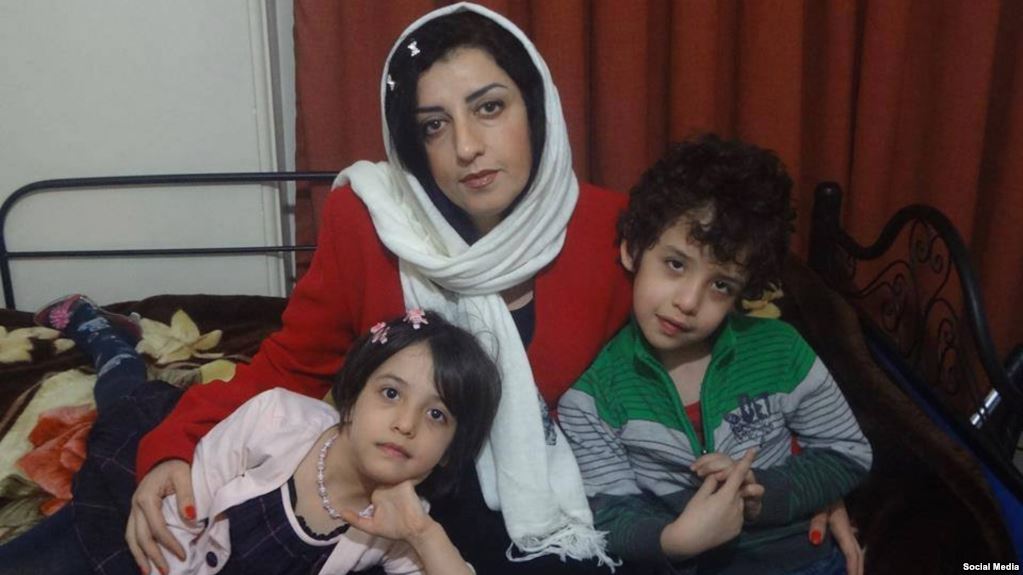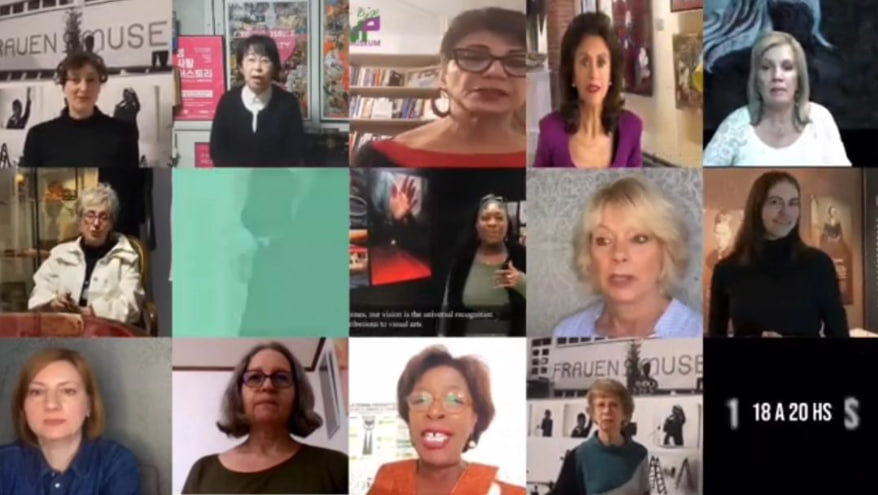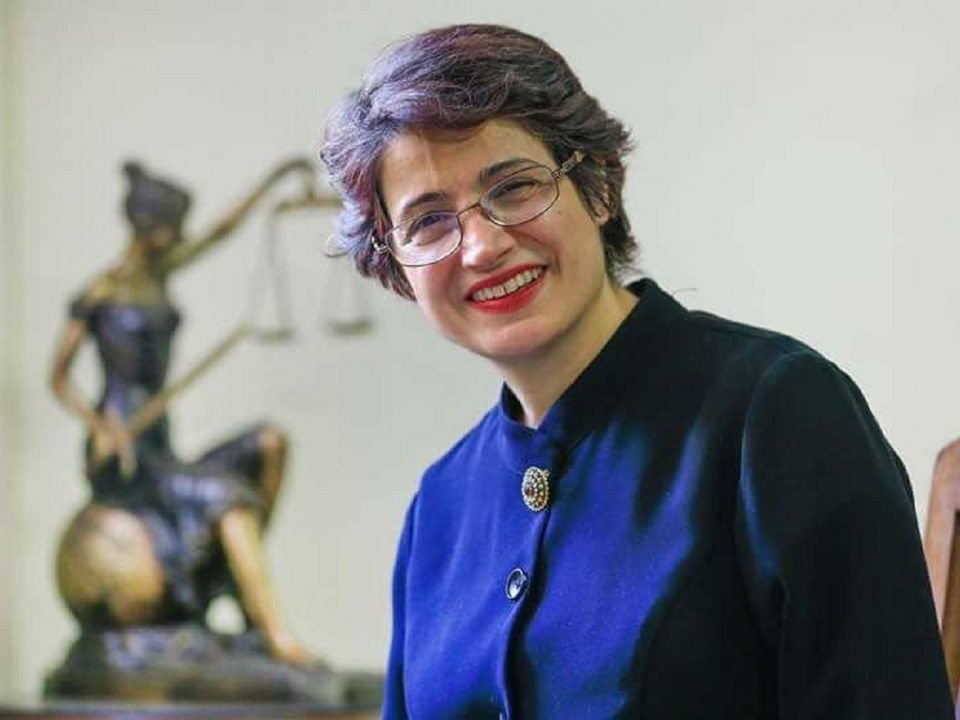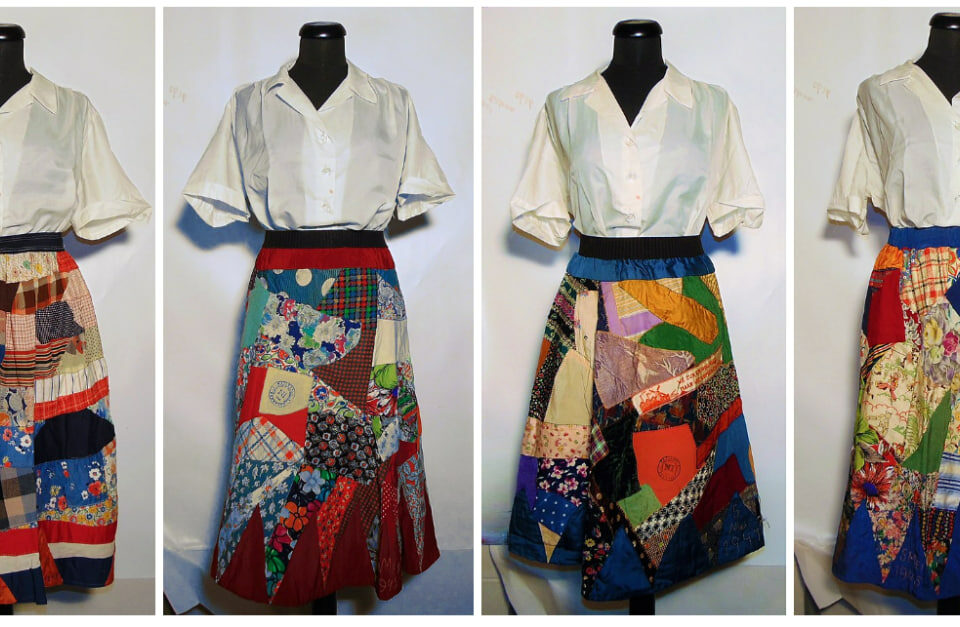
“Iranian Women’s Movement Museum” inauguration: “From Evin With Love”
April 2, 2018For Eyes That Kissed My Eyes
June 2, 2018sitting in Evin Prison in Iran is this year’s Andrei Sakharov prize recipient – Narges Mohammadi. Mohammadi was awarded the prize “for her leadership in campaigning for peace, justice and the abolition of the death penalty, as well as her unwavering efforts to promote the human rights and freedoms of the Iranian people, despite persecution that has forced her to suspend her scientific pursuits and endure lengthy incarceration.”
Narges is currently serving a 16 year sentence. She is an Iranian physicist, engineer and human rights defender.
—————————————————————————————–
A PRISONER OF CONSCIENCE Monday, April 16 11:21 AM–11:57 AM B131-132
The Andrei Sakharov Prize comes with a couple perks: a $10,000 prize and a travel allowance to attend the APS Meeting to be recognized for their work. The latter of these two prizes is unusable by the recipient herself. Narges Mohammadi is in prison. Mohammadi is an Iranian physicist and engineer whose ongoing advocacy for human rights in Iran landed her in a 16-year prison sentence. Her work forwarding human rights and social justice in her home country are the basis for this year’s Andrei Sakharov Prize, for which she is a co-recipient (with Ravi Kuchimanchi). She advocates for women’s rights, for the abolition of the death penalty, against the oppression of intellectuals, and several other human rights causes in Iran. Merely speaking out is met with harsh punishment and fierce tactics to silence her. Mohammadi lost a career in the sciences in 2009 when she was dismissed from the Engineering Inspection Corporation. That same year started a tumultuous journey of arrest and incarceration. She has been imprisoned several times, punctuated by periodic releases to allow for medical treatment. Solitary confinement has only exacerbated her existing, critical medical conditions including a blood clot in her lungs and a neurological disorder resulting in seizures. Nevertheless, Mohammadi persists. As Mohammadi is not able to attend the April Meeting, Nayereh Tohidi will be accepting the Sakharov Prize on her behalf at the awards ceremony Sunday night. Tohidi is a California State University professor of gender and women’s studies with a specialty in Middle Eastern studies. On Monday Tohidi will stand in for Mohammadi and read a statement written by the imprisoned human rights activist. At this meeting in the least, Narges Mohammadi will have a voice. Even if it is borrowed from a friend.
http://meetings.aps.org/Meeting/APR18/Session/R07.2
Saturday–Tuesday, April 14–17, 2018; Columbus, Ohio
Session R07: Physicists and Human Rights
10:45 AM–12:33 PM, Monday, April 16, 2018
Room: B131-132 at the Greater Columbus Convention Center, 400 N. High Street, Columbus, Ohio 43215
https://www.aps.org/meetings/april/about.cfm
Sponsoring Units: FIP FECS
Chair: Elena Aprile, Columbia University
Abstract: R07.00002 : Andrei Sakharov Prize Talk: Prisoners of Conscience in Iran (Presented on behalf of Narges Mohammadi by Nayereh Tohidi)
11:21 AM–11:57 AM
Author: Narges Mohammadi (Iran)
Presented by: Nayereh Tohidi (California State University)
For me, as a prisoner of conscience, it is uplifting and great honor to be recognized by esteemed scientists like yourselves and to be awarded the Andrei Sakharov Prize. I was filled with joy when studying quantum physics at the university as a means to understand the universe. However, at the same time, I was preoccupied with the oppressive conditions in my country and the tyranny suffered by our universities, intellectuals, and the media. What we experience in Iran is a tyranny that in the name of religion restricts and punishes science, intellect, and even love. It labels as a threat to national security and toxic to society whatever is not compatible with its political and economic interests. The power-holders who believe they stand above the law and who disregard justice and the urgent demands of the human conscience, use “white torture” on political prisoners; keeping suspects in solitary confinement is a routine and prevalent procedure. I am one of the thousands of the victims of such horrible tortures in solitary confinement. You are not hearing here some random ideas of a distressed prisoner, but reflections rooted in the experience of a woman physicist and a mother of two kids who happens to have also advocated for equal rights and human rights by being active in eleven civil society organizations in the last 25 years. As a result, I have been subjected to threats, deprivation, arrests, continuous prosecutions, and finally sentenced to a total of 23 years of imprisonment, 16 years of which I have yet to serve. The harsh treatment and excessive sentence were not due to any underground violent or terrorist activity on my part, but– as admitted by the judges of this very system– because of my insistence on the rights of civil society and on human rights. Iran is an oil and gas-rich country, but millions of Iranians are deprived of decent living standards. Mismanagement and corruption result in high rates of unemployment, widespread poverty and denial of people’s economic rights. I still hope and deeply believe that path to democracy in Iran lies not through violence, war, or military action by a foreign government, but through organizing and strengthening civil society institutions. Sitting here in my prison cell, I am humbled by the honor you have bestowed on me and I will continue my efforts until we achieve peace, tolerance for a plurality of views, and human rights.
